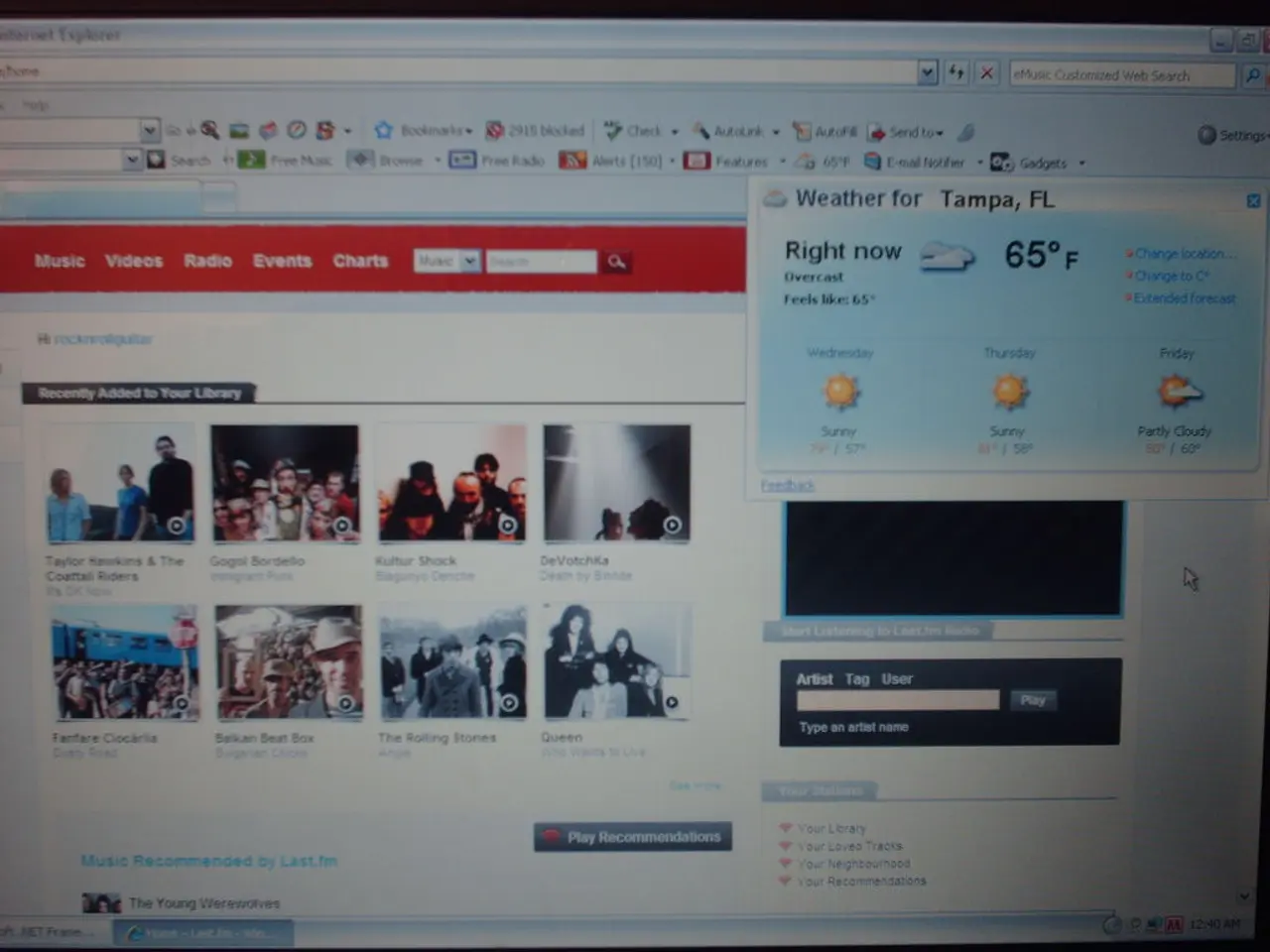Reimagining Entertainment: The Revolution of Streaming Platforms in Shaping Our Screen Time
Streaming Services: A Catalyst for Cultural Diversity in Media
In the modern era of entertainment, streaming platforms like Netflix, Amazon, and Hulu have revolutionised the way we consume content. With mini-series, sprawling multi-season epics, and a vast collection of international films and series at our fingertips, the shift from traditional television to streaming has been both liberating and empowering for many viewers [1][2].
One such individual is an author who found that joining the conversations on social media about the latest content enriched their viewing experience. They were exposed to diverse voices and perspectives from across the globe, fostering a rich cultural dialogue and understanding through these platforms [3].
The emergence of streaming services has led to a significant expansion of diverse storytelling and cultural exchange. By providing global audiences access to a wide range of narratives from different cultures, languages, and perspectives, they have enabled stories rooted in specific cultural contexts to reach international viewers [1][3][4].
This support for culturally specific storytelling has been instrumental in the rediscovery and valorization of local cultures worldwide. For instance, the author was captivated by an Indian series that tackled issues like caste systems and gender roles, offering a unique insight into a culture far removed from their own [4].
Streaming services have also facilitated cultural exchange, allowing viewers to experience narratives from different regions, including those traditionally underserved by legacy media such as diaspora communities. This contributes to stronger cultural connections and broader audience exposure to varied traditions and perspectives [1][3][4].
However, the use of personalized recommendation algorithms can pose challenges. While they promote diverse content, they also risk creating "filter bubbles," limiting exposure to lesser-known voices and marginalizing underrepresented perspectives unless platforms adopt transparent and ethical content policies [1].
The abundance of diverse content on streaming platforms has also changed narrative structures toward longer arcs and formats that hold viewers' attention. This shift, coupled with the flexibility of on-demand access, has supported varied storytelling techniques and genres, including more experimental and international works being produced and consumed globally [2].
The impact of streaming services extends beyond entertainment, influencing traditional media as well. Their flexibility, multilingual offerings, and cultural specificity have reduced reliance on traditional TV, especially for diaspora audiences seeking culturally relevant programming on their schedules [3].
In summary, streaming services have become powerful agents for cultural diversity in media by enabling storytelling that reflects a multiplicity of voices and by facilitating cross-cultural dialogue. However, algorithmic curation and commercial pressures pose ongoing challenges for fully equitable representation [1][3][4].
As we reminisce about the excitement of rushing home to watch our favourite shows at a specific time, it's clear that streaming services have transformed the way we engage with content communities. They have not only expanded our horizons but also enriched our lives with diverse narratives and unconventional formats that inspire and captivate us.
- The emergence of smart systems, such as streaming platforms, has led to the development of innovative AI-powered solutions that automate content recommendations, enhancing the viewing experience for users.
- With the influx of smart solutions, entertainment technology has witnessed significant advancements, allowing for the production and consumption of varying genres and exotic narratives from diverse regions.
- Glass-ceiling barriers in traditional entertainment industries are being shattered with the rise of smart automation, as platforms like Netflix and Hulu invest in smart solutions to cater to audience preferences and encourage innovation in diverse storytelling.
- In line with technology developments, streaming services also offer an extensive array of international films and series, promoting cultural diversity and fostering understanding between different communities worldwide.
- As AI-driven smart systems become more integral to the entertainment industry, it is essential to address concerns related to algorithmic curation and ensure the representation of diverse voices and perspectives from various regions, thus encouraging further innovations and cultural dialogues.




